My ‘Great Reshuffle’ Into the World of Audio
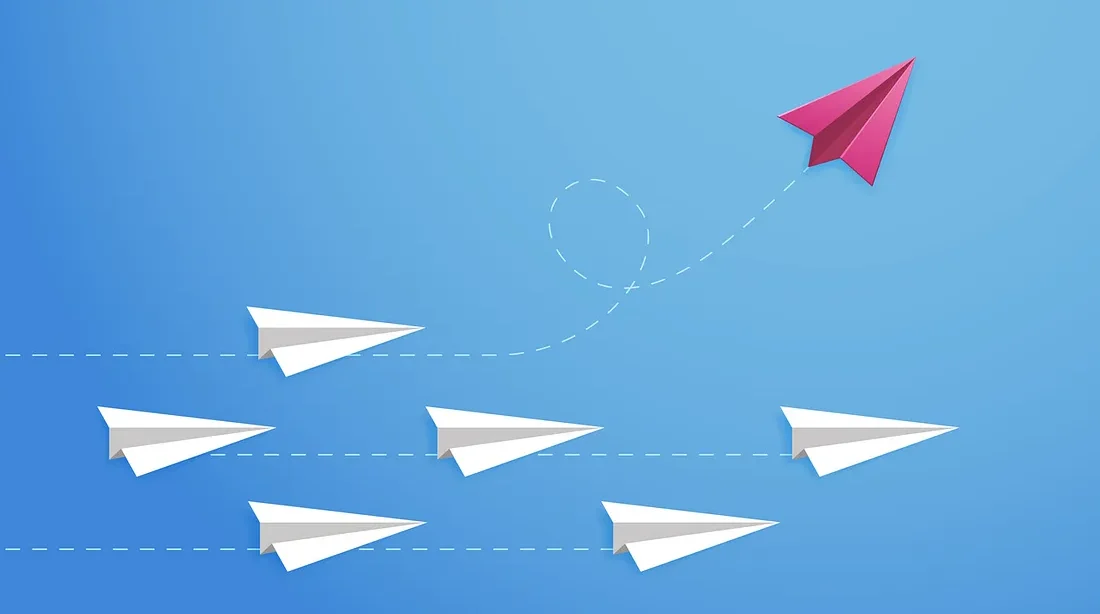
In 2012, if you asked me to make one of those, ‘Where do you see yourself in one year? Five years? Ten years?” plans, I would have laid out a step-by-step overview: complete a master’s, then get a Ph.D. in the same subject, maybe do a postdoc, and then be in the running to land a biotech job in San Francisco. At the time, I was still in New Brunswick, finishing up the last few courses of my undergraduate degree and accepting an offer to a master’s program in Quebec. I immediately said yes. The one downfall was that the program was wholly French, which I did not speak. But I didn’t want that to stand in my way. So I bought a French-English dictionary and packed my things.
The program was a crossover of computer science and biology — a relatively new field called Bioinformatics. I had done some undergraduate research in this area, but I still felt incredibly out of my element. It didn’t help that I couldn’t communicate well with many people in the department. On top of my regular schoolwork, I took night school courses in French, but it wasn’t enough, and I became discouraged. Eventually, I sort of decided to go it alone. The saving grace was a summer-long internship in Santa Fe, New Mexico, at the National Center for Genome Resources. I would be able to continue working on my master’s research alongside other graduate students working on similar projects in English. I jumped at the chance. It gave me the boost I needed to keep going with my degree.
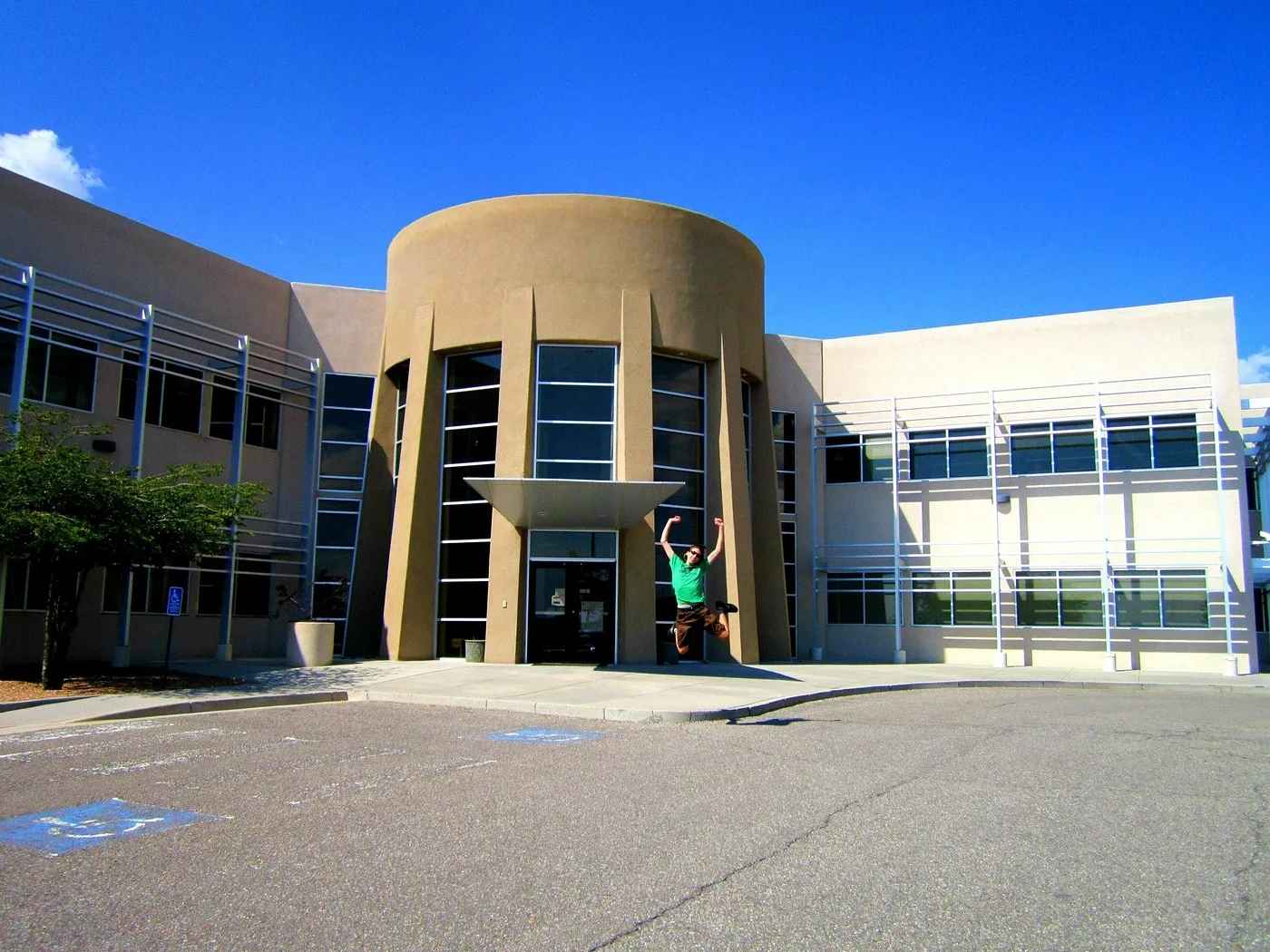
Still, I started to question, ‘Am I doing the kind of work I want to be doing?’
All this time, all I could think about was San Francisco. This was just what I had to do, right? Complete each step to unlock the next level. I was on the pathway to a coveted biotechnology job. So I didn’t even think to stop and listen to what I was feeling.
When I returned to Quebec, I went back to the Arctic for one last field research season, collecting samples for our lab before writing my thesis. A funny thing happened during that trip. I found myself more excited about trying to find ways to photograph and document the journey than anything else.
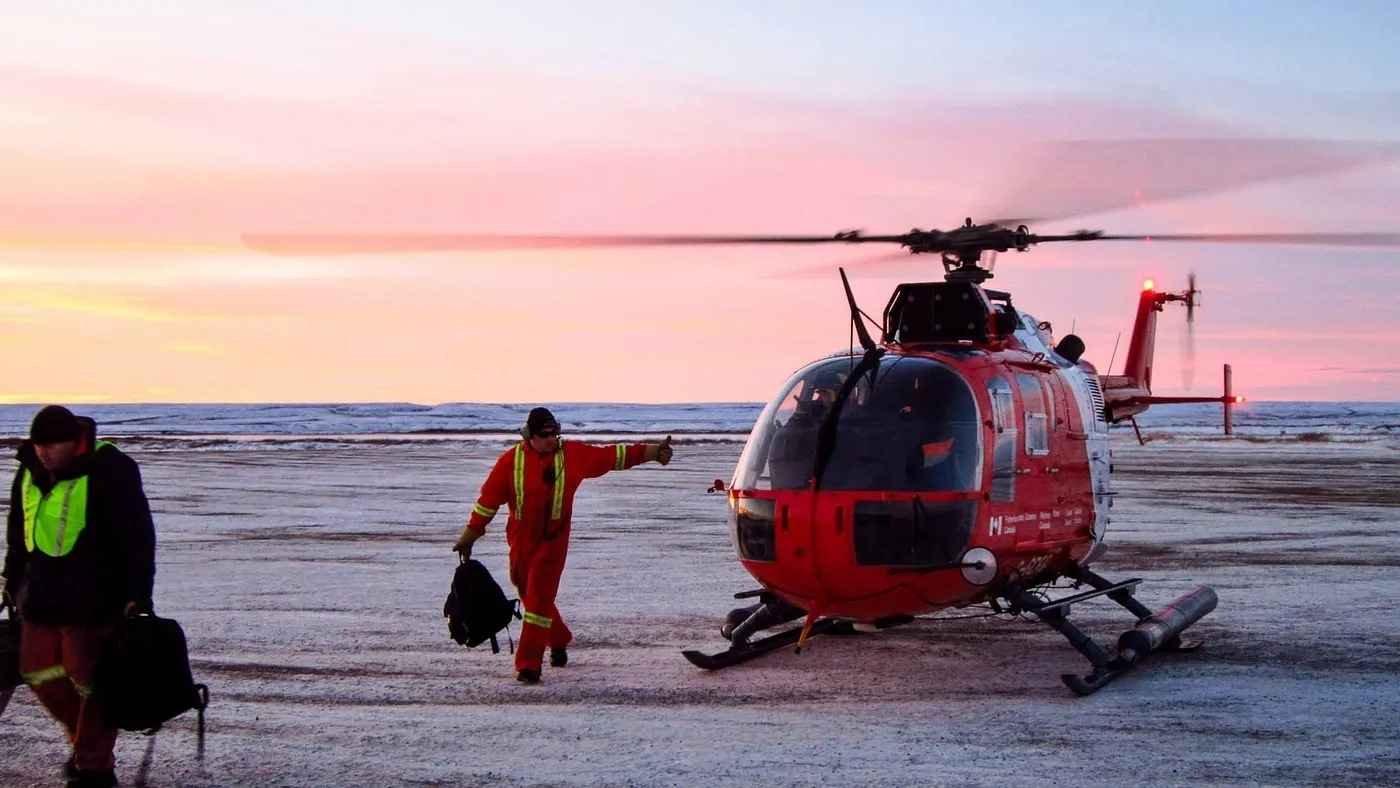
I had brought three different types of cameras — film, digital, and a GoPro — and I took pictures from the time we left Quebec through to the final day of the trip. I even managed to do short interviews with other scientists about their work. Every spare moment I had outside my lab work, I spent documenting the people on the ship. I had invested my curiosity in them. By the end of the trip, I had a feeling that I was more interested in telling the story of our research than I was in doing it. But I pushed those feelings away.

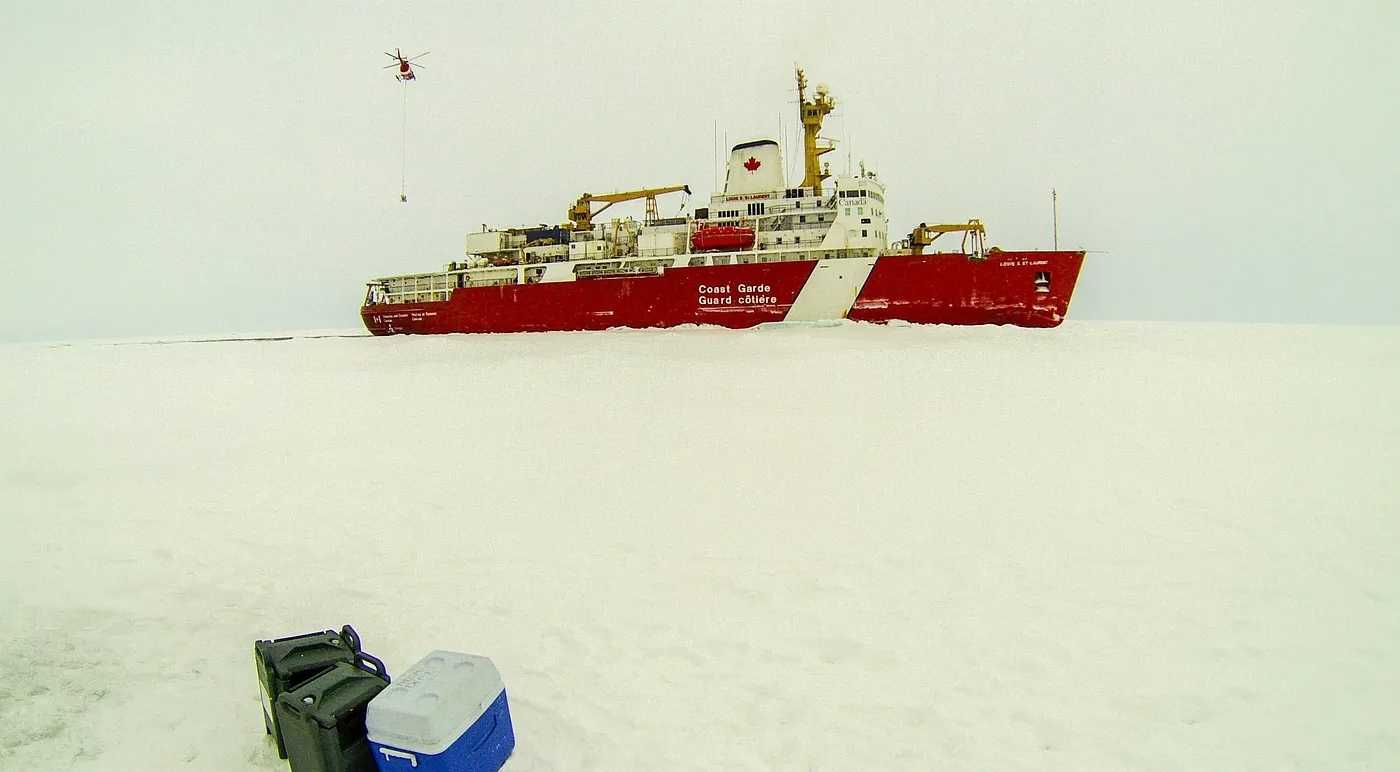
When I was back on dry land, I began sending emails off to various biotechnology companies in the Bay area. I was trying to get an informational interview with anyone who could convince me that I was taking the ‘right’ steps. When I was able to get the CTO of a company that I was interested in on the phone, I asked, ‘Is it possible to start working with a master’s degree?’ I can still remember what he said, ‘You have all the necessary skills to do this job already, but no one will take you seriously without a Ph.D.’ It took a while for that to sink in. And once it had, I became angry. And the more I thought about it, the angrier I got. Am I on this track just because it was the only way to get noticed? Do I need to spend an extra five years in school? Regardless, I had my answer. If I wanted any chance of standing out, I needed to stay the course.
I completed my degree in 2015. And immediately after, I started a Ph.D. program in Ontario that I was recruited for earlier that year. And when I say immediately, I mean that literally. I submitted my thesis on a Friday in May, packed my belongings into my 2002 Honda Accord, and drove nearly 900 km to Ontario that weekend. I started working in a new lab on my Ph.D. research Monday morning.
I was tired. I was no longer enjoying academic science. But I couldn’t forget what that Bay–area CTO and every professor and mentor told me — stick with it. Not to mention, universities did not just hand out opportunities like this. I put in a lot of hard work, and I wasn’t ready to throw that work and this opportunity out the window.
But it didn’t take long for the exhaustion and doubt to catch up to me. Within a few months of starting my Ph.D., I was mentally checked out and had difficulty finding the energy to get out of bed. I couldn’t accept that maybe I shouldn’t finish the program. It was frightening to consider walking away from the years of work towards this one path.
So instead of recognizing that I was not doing well mentally, I assumed that there must be something physically wrong with me. ‘Did I have an iron deficiency? Did I have mono?’ I sought the help of a doctor who ran all the blood tests. Everything came back normal. My doctor then suggested that I book some time with the school therapist. I was initially quite opposed to admitting that I might need the support of a mental health professional, but I also knew that I needed something to change, so I booked an appointment.
The therapist I saw was assigned to treat graduate students. For four months, I saw him every other week. Each session, we would discuss how I was feeling or what was going on in my day-to-day. We also talked about what I hoped to achieve — both in the Ph.D. program and in my life. I had been to a counselor once before. It was during my undergrad when I was seeking help for a friend. Seeking help for myself was pretty new to me. I left the first session thinking, ‘Why am I telling this stranger about my life? How is this going to help?’ But he asked that I come back again, so I booked more appointments and kept showing up.
After a few months, I finally started to identify that I wasn’t happy doing what I was doing. In one of my later sessions, I remember talking about how one of my primary motivators for staying in the program was a fear of failing. And saying it out loud made me hear it for the first time. I was only staying on this path because I was afraid. I feared being perceived as a failure. For whatever reason, I saw leaving the program as admitting that I shouldn’t have started it in the first place.
That realization was the fuel I finally needed to start making changes. I spoke to a few people in the department and learned that I could take a year off without much consequence. So I signed the papers and took a year-long leave of absence from my program. It allowed me the safety net of not outright quitting but still buying a whole year to try new things. So, I signed myself up as a volunteer at the campus radio station, found a job in a café, and then breathed a huge sigh of relief.
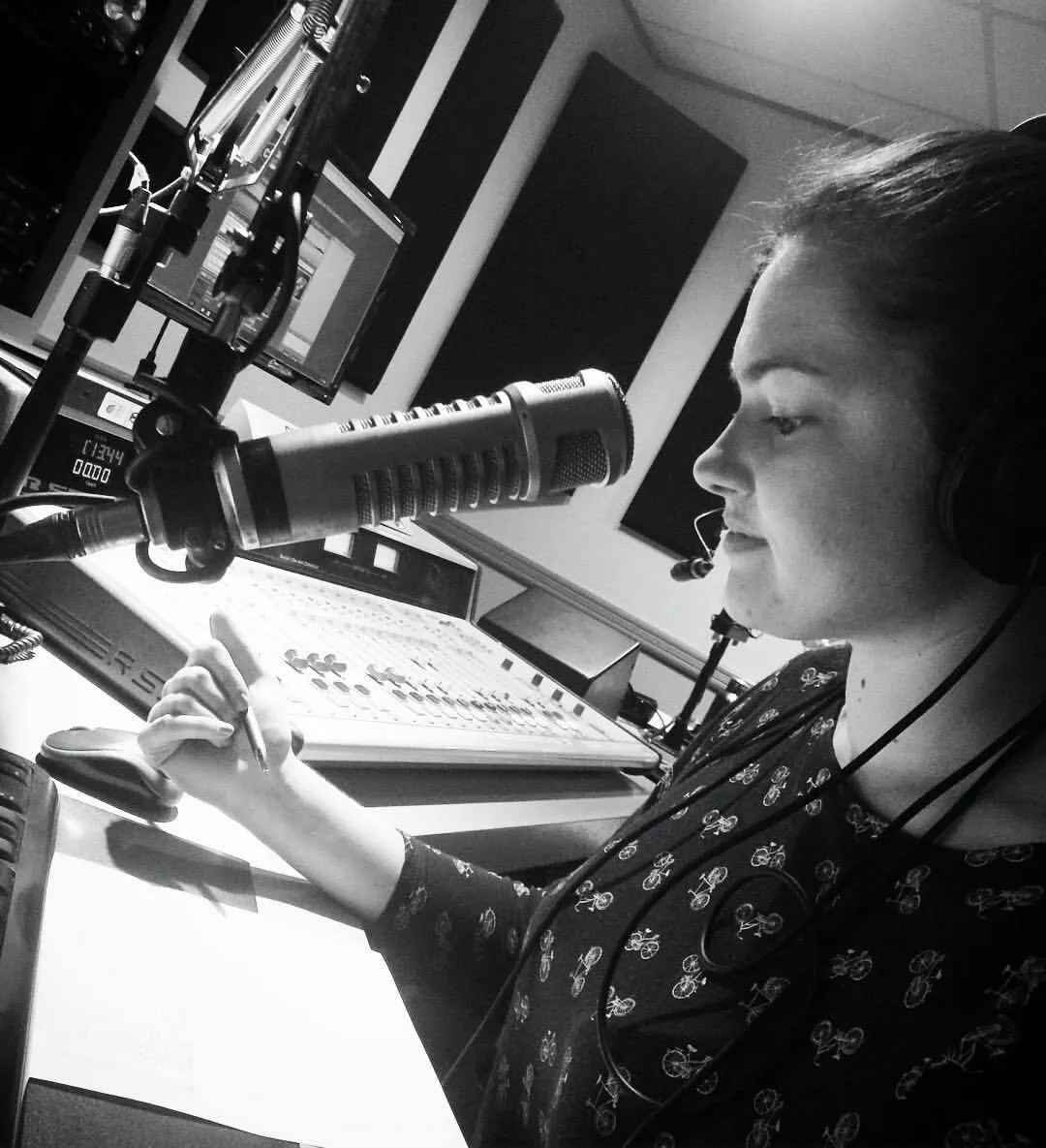
A few months into my hiatus, I was spending countless hours a week at the radio station and loving every second. I always wanted to try my hand at campus radio. There was something romantic about it — creativity for creativity’s sake. And in my favourite medium — audio.
Sadly, I had been so busy with school and part-time jobs that I never found a way to carve out the time in my previous life. So I kept listening to shows that I loved but never tried to make anything myself.
Now I used my volunteer time to try every part of the production process — from hosting live shows to editing tape to writing and producing show promos — I did a little bit of everything. I even started a segment focused on telling stories about science and innovation in the city where I lived and went out for some of my first field recordings.
I started collecting the pieces I was most proud of and building a portfolio while working a minimum wage job as a barista at a café and not thinking about my Ph.D. or San Francisco. After about four months of volunteering, I started researching the podcasts made in my area and sending cold emails with a link to the portfolio of all the best work I’d made so far. And to my surprise, I got responses! That summer, I began working as a production intern for a small but scrappy tech podcast, and I learned a lot. It was hard to make ends meet as a non-paid intern, and I was still just working at a café. But I was happy, finally.
Eventually, I left the Ph.D. program for good. A couple of years later, I went back to school for a graduate certificate program in Documentary Radio at the SALT Institute in Portland, Maine. Never once did I look back and wish I had finished the Ph.D.
It took me reaching a breaking point to reassess what I was doing and why. And to ask if I was enjoying the work. I let fear of failure and a fear of the unknown keep me on a job track that wasn’t a good fit for me. But once I was open to seeing that there were other options, I began to recognize how many transferable skills I had amassed over the years in school. And I started to say yes only to things that excited me.
I won’t lie and say that everything was easy from that point forward. It was still hard work. But the most significant change I made was checking in with myself and making sure the choices I was making were serving me and the life I wanted to live.
I will say, in hindsight, I was fortunate to have faced doubts and mental health adversities while still in a school program because Universities have better support and resources than what most people have access to in their day-to-day lives. Of course, it’s no easy feat to seek help when you are outside the walls of academia. But it is worth it when you are in need.
The last two years and the more recent Great Reshuffle have made these conversations even more relevant. It’s never too late to take a step back and reassess if doing what you’re doing is fulfilling. And I know now from experience that you’re only letting yourself down when you aren’t at least asking yourself those questions.
Sign up for the Pacific Content Newsletter: audio strategy, analysis, and insight in your inbox.
